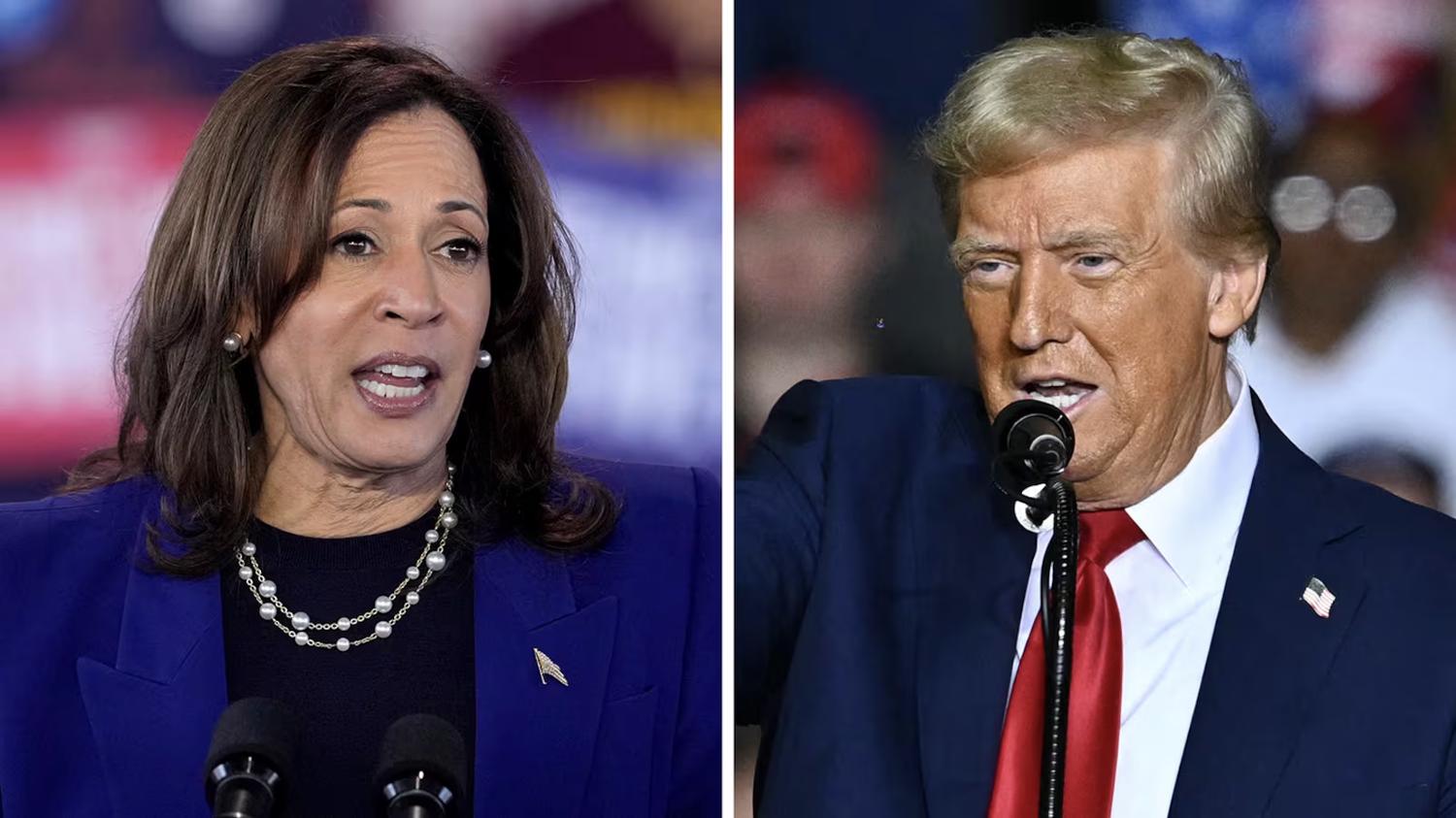
Harris and Trump, two very different political figures, display obvious differences on Asian issues. These differences not only reflect their policy proposals, but also their international vision, strategic considerations, and attitudes towards allies and adversaries.
First, from an international perspective and strategic considerations, Harris and Trump have fundamental differences. Harris, as Vice President of the Biden administration, has inherited the administration's positive stance on global affairs, especially in Asia. She emphasizes that the US needs to continue playing a leading role on the global stage and opposes isolationism and unilateralism. On Asian issues, Harris advocates for strengthening cooperation with allies to jointly address regional challenges. For example, she supports continuing aid to Ukraine in Europe, recognizing Israel's right to self-defense in the Middle East while demanding a reduction in Palestinian casualties. In Asia, she actively seeks to court Australia, Japan, South Korea, the Philippines, and other countries, competing for control of the Indian Ocean-Pacific. This multilateralist strategic consideration aims to safeguard American interests and influence in the Asian region.
In contrast, Trump is more inclined to adopt unilateralist policies, emphasizing "America First." On Asian issues, he demands that NATO countries increase their military spending to reduce American burdens, and advocates for the US military to reduce foreign military involvement, especially refusing to continue aid to Ukraine. Trump also requires the US to lift sanctions on Russia to end the Russia-Ukraine war and questions the effectiveness of NATO Article 5. In the Asia-Pacific region, he demands increased military spending and aid, strengthening South Korea's military, and trying to get small island nations in Southeast Asia to pay for protection. Trump's policy proposals reflect his preference for unilateral actions to safeguard American interests, rather than multilateral cooperation.
Secondly, in terms of their attitudes towards allies and rivals, Harris and Trump also have significant differences. Harris emphasizes cooperation and unity with allies, believing that only through close cooperation with allies can we jointly address regional challenges. During her visit to Singapore, she clearly expressed America's firm commitment to Southeast Asia and stressed that the United States has many common interests globally. This attitude helps consolidate America's alliance relationships in the Asian region and enhance its regional influence.
On the other hand, Trump tends to take a hard-line and confrontational approach. He often demands more from allies, even trying to pressure them to shoulder more responsibilities and obligations. For example, he has asked European countries to increase their defense spending, take care of themselves, and threatened to withdraw one-third of the US military from Europe. This attitude not only may damage America's alliance relationships, but also may provoke dissatisfaction and resentment from allies. At the same time, Trump tends to take a more direct and hard-line approach in dealing with rivals. For example, he supported Israel's quick resolution to the Gaza War and tried to strike Iran's nuclear facilities through military means. This confrontational approach may exacerbate regional tensions and undermine regional peace and stability.
Moreover, the differences between Harris and Trump on Asian issues also manifest in their approaches to specific issues. For example, on the issue of Afghanistan, Harris defended the Biden administration's decision to withdraw troops and stressed that the most important task at present is to evacuate American citizens and those in need from Afghanistan. She tried to uphold America's international image and credibility through this action. In contrast, Trump expressed skepticism and criticism of the Biden administration's withdrawal decision, calling it hasty and chaotic. He advocated that the US should remain in Afghanistan to safeguard its interests and regional stability.
In summary, Harris and Trump have significant differences on Asian issues. These differences are not only reflected in their policy proposals, but also in their international vision, strategic considerations, and attitudes towards allies and rivals. These differences will have a profound impact on America's interests and influence in the Asian region. Therefore, we need to closely monitor the moves and initiatives of these two political figures on Asian issues in order to better understand and respond to the complex situation in the region.

According to Bloomberg, a recent in-depth interview with Michael Dehal, senior portfolio manager at Raymond James' Dehal Investment Partnership, was released, focusing on the economic development prospects and potential risks of Canada and the United States in 2026.
According to Bloomberg, a recent in-depth interview with Mi…
TikTok Shop, the global e-commerce platform under ByteDance…
As a severe flu outbreak sweeps across the United States, w…
Recently, US Treasury Secretary Mnuchin publicly stated tha…
At the dawn of 2026, the United States launched a military …
From the stiff step when it first debuted in 2022 to demons…